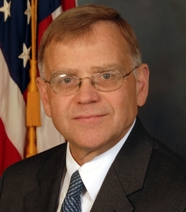We started this Q&A series earlier this year with a clear vision—to gather the success stories, best practices, hurdles and achievements from the best in our industry. Our hope is that as the series expands and evolves, food safety professionals everywhere will be informed and inspired by what the future holds.
Over the course of the year, I had the pleasure of interviewing three such experts: Bob Baker, corporate food safety science and capability director at Mars, Inc, Frank Yiannas, vice president of food safety at Walmart, and Mike Robach, vice president, corporate food safety, quality & regulatory for Cargill.
I encourage you to read the interviews for their unique perspectives, but here are a few of the biggest insights that we can all take with us into 2019.
The Continued Rise of New Technologies
Mike Robach: I am very excited about the application of new technology to our food safety programs. In-line, real-time testing gives an opportunity to manage our processes and make immediate adjustments to assure process control. This allows us to prevent product that is out of control from reaching the marketplace.
Frank Yiannas: The emergence of blockchain technology has also enabled food system stakeholders to imagine being able to have full end-to-end traceability at the speed of thought. The ongoing U.S.-wide romaine lettuce E.coli outbreak showed us, once again, that our traditional paper-based food tracking system is no longer adequate for the 21st century. An ability to deliver accurate, real-time information about food, how it’s produced, and how it flows from farm to table is a game-changer for food safety.
Blockchain has the potential to shine a light on all actors in the food system. This enhanced transparency will result in greater accountability, and greater accountability will cause the food system to self-regulate and comply with the safe and sustainable practices that we all desire.
The Most Exciting Shifts
Baker: What’s encouraging is we’re seeing is a willingness to share information. At Mars we often bring together world experts from across the globe to focus on food safety challenges. We continue to see great levels of knowledge sharing and collaboration.
There are also new tools and new technologies being developed and applied. Something we’re excited about is a trial of portable ‘in-field’ DNA sequencing technology on one of our production lines in China. This is an approach that could, with automated sampling, reduce test times.
Yiannas: While there is no doubt that there are numerous new and emerging challenges in food safety, the many advancements being made should give us hope that we can create a safer, more efficient and sustainable food system.
There is progress being made on many fronts: Whole genome sequencing is becoming more accessible; new tools are being developed for fraud detection; and FSMA is introducing stringent public-health surveillance measures that have dramatic implications for U.S. retailers and suppliers and our import partners.
Most importantly, consumers are now overwhelmingly interested in transparency. People today are further removed from how food is grown, produced and transported than at any other time in human history. Plus, they increasingly mistrust food and food companies due to the food outbreaks and scares we have faced in recent years.
Recalls and the Role of Regulation
Robach: I think FSMA implementation is going okay right now. There’s still a long way to go, and I am always concerned about making sure investigators are applying the rules and regulations in a consistent manner. I see the intentional adulteration rule as an upcoming challenge. It is one thing to conduct a vulnerability assessment and adjust your programs based on the results. It’s another to develop and implement a program that will prevent intentional adulteration as you would to reduce or prevent microbiological contamination.
I believe that food safety management programs are constantly improving and that our food is as safe as it has ever been. However, we still have a lot of work to do. At GFSI, we are continually improving our benchmarking requirements and increasing transparency in the process. We have better public health reporting and our ever-improving analytical technology allows us to detect contaminants at lower and lower levels. The industry is working collaboratively to share best practices and promote harmonized food safety management systems throughout the supply chain.
Baker: At Mars, quality is our first principle and we take it seriously—if we believe that a recall needs to be made in order to ensure the safety of our consumers, then we will do it. We also share lessons from recalls across our business to ensure that we learn from every experience.
Unfortunately, there does not seem to be a safe place for businesses to share such insights with each other. So although we are seeing more collaboration in the field of food safety generally, critical knowledge and experience from recalls is not being shared more broadly, which may be having an impact.
Looking Ahead
Baker: The food safety challenges facing us all are complex and evolving. Water and environmental contaminants are areas that industry and regulators are also looking at, but all of these challenges will take time to address. It’s about capturing and ensuring visibility to the right insights and prioritizing key challenges that we can tackle together through collaboration and knowledge sharing.
…
We’re looking forward to continuing our quest in the new year and already have a few exciting experts lined up. Stay tuned!







